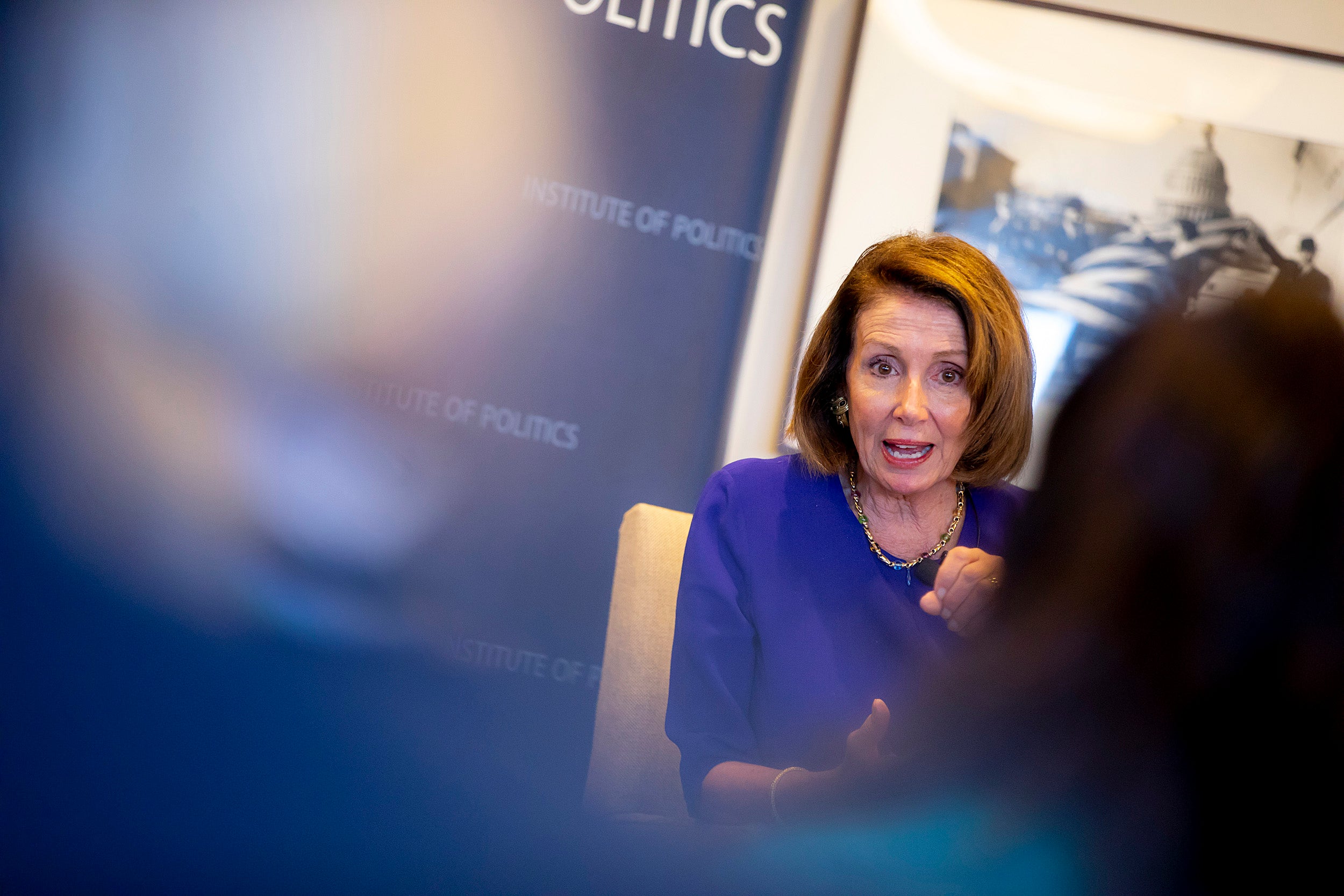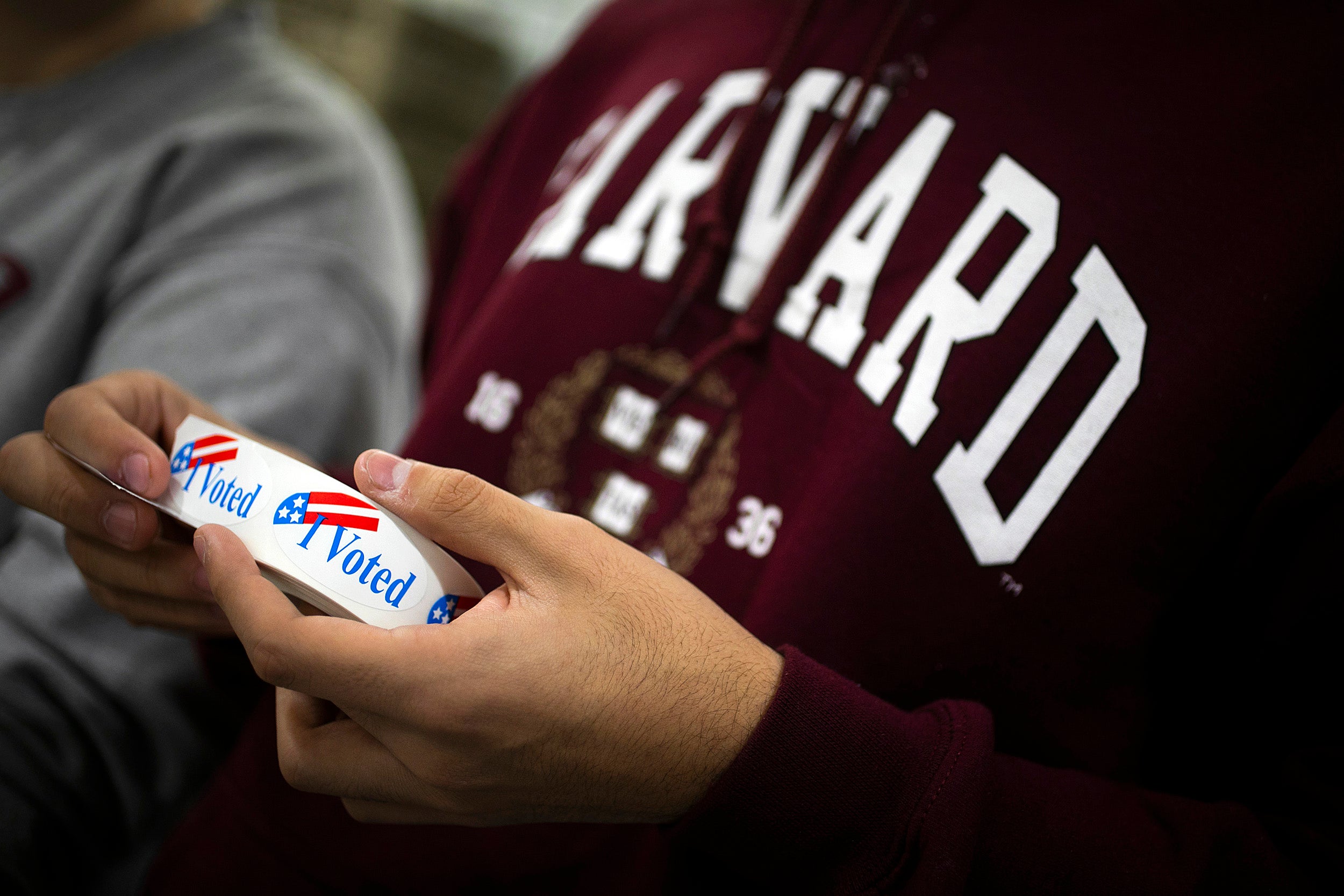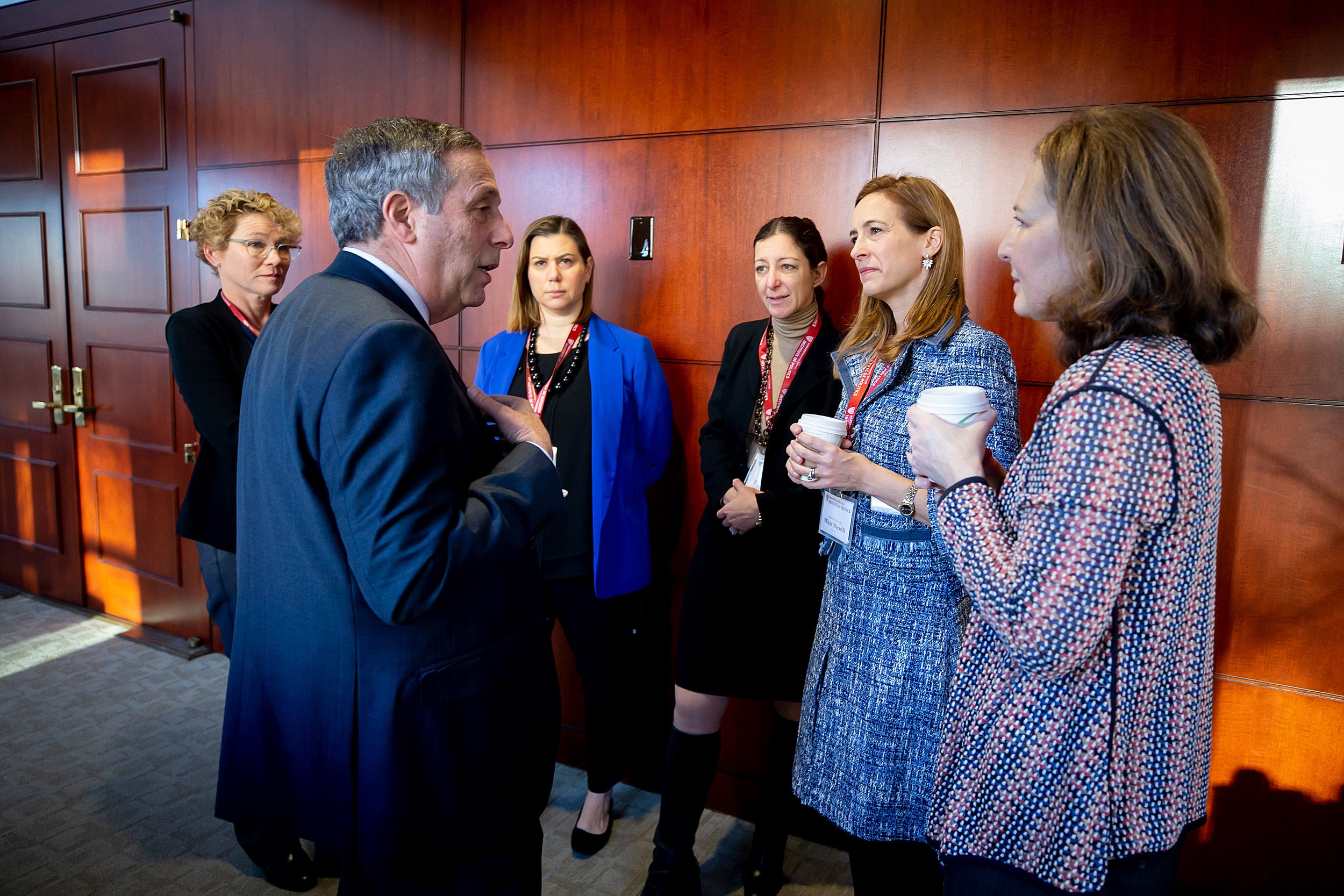
Harvard President Larry Bacow speaks to Reps.-elect Chrissy Houlahan (from left), Elissa Slotkin, Elaine Luria, Mikie Sherrill, and Kim Schrier.
Photos by Rose Lincoln/Harvard Staff Photographer
New congressional members at Harvard
Over three days, incoming Republicans and Democrats familiarize themselves with issues ahead
In just a few weeks, the days of walking around town unnoticed will be over. There will be many more urgent demands and requests for time than there are hours in the day. And any decisions made will have consequences on people’s lives.
The women and men who had never before run for Congress, or any office, but emerged victorious from the 2018 midterm elections are about to find out, in real time, just what they signed up for.
To help ease that transition, the Institute of Politics (IOP) hosted its longstanding bipartisan orientation program for new members of Congress at Harvard Kennedy School (HKS) this week. Sixty-three soon-to-be House representatives from both parties spent three days meeting Harvard students and faculty and each other, as well as learning more about a host of major issues, theoretical and practical, that they’ll confront when they’re sworn in as members of the 116th Congress early next month.
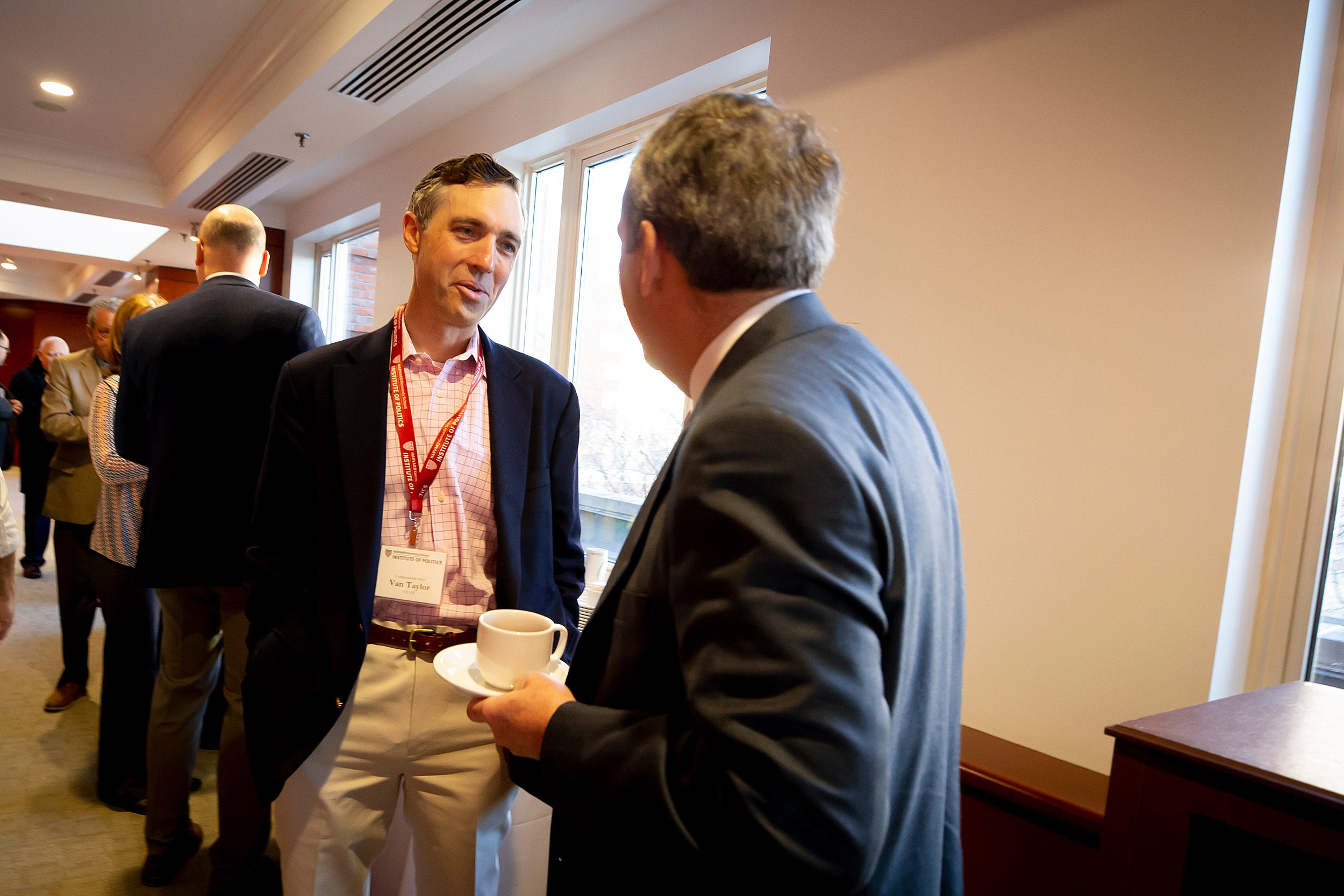
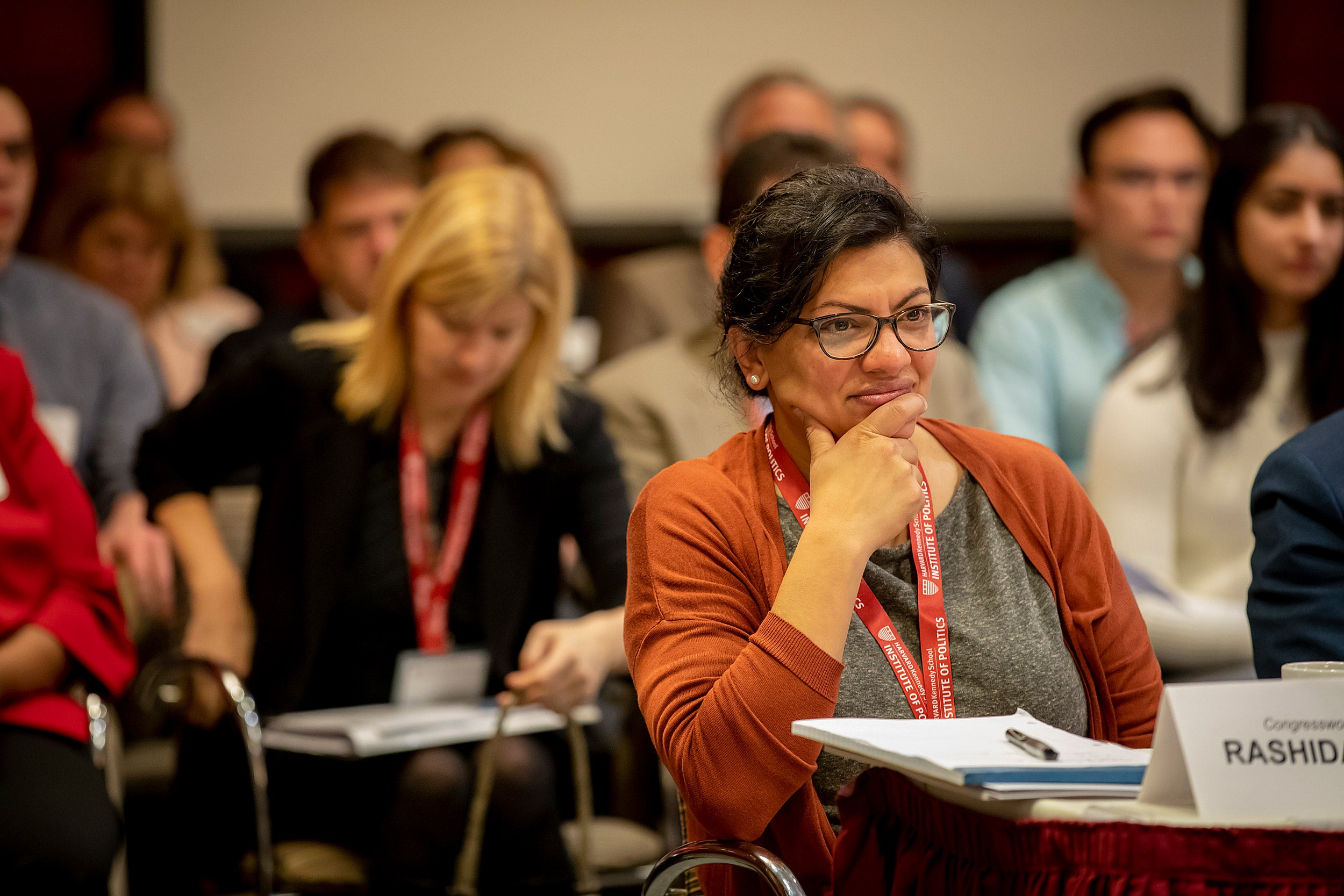
Van Taylor and Rashida Tlaib were among the 63 newly elected House representatives at Harvard this week.
During a welcome breakfast Wednesday morning, Harvard President Larry Bacow thanked the members for their willingness to enter “the fray” of public service and urged them to inspire others to engage. While the national conversation about politics and government has grown coarser in recent years, he spoke of the “special responsibility” that public leaders have to model for others respectful behavior and proper civil discourse.
“We need to demonstrate to the rest of the world that we believe in the fundamental decency of this country by how we treat each other,” Bacow said.
Bacow also encouraged the future lawmakers to view Harvard, and America’s colleges and universities more broadly, as a helpful resource on which to draw regularly. Whether by staffing student internships or providing scholarly insights and breakthroughs, “We are a source of expertise, and I hope you will use us and exploit all of us mercilessly, because every college and university in America exists to serve the nation in one form or another. That is what we do, it’s why we’re here,” Bacow said.
The newly elected came from across the country, as far away as Guam, and included not only this state’s two incoming representatives, Ayanna Pressley (D-Mass.) and Lori Trahan (D-Mass.), but members of both parties with diverse backgrounds, including Daniel Crenshaw (R-Texas), Rashida Tlaib (D-Mich.), Tom Malinowski (D-N.J.), and Guy Reschenthaler (R-Pa.). The attendees absorbed seminars on nuts-and-bolts matters like how congressional budget and appropriations processes work, thanks to HKS Dean Douglas Elmendorf’s expertise as a former director of the Congressional Budget Office, and how to protect offices from cyberattacks, with leaders from the Defending Digital Democracy Project at HKS.
Loftier topics, such as civility and democracy, poverty, and America’s role in the world, were discussed by Harvard faculty members Danielle Allen, Raj Chetty, and Samantha Power, while high-profile guests such as Gary Cohn, the Trump administration’s former National Economic Council director, U.S. Secretary of Transportation Elaine Chao M.B.A. ’79, and Mary Barra, chair and CEO of General Motors, spoke about economic growth, government, and business.




